LATEST INSIGHTS
Your Present Location: LATEST INSIGHTS-
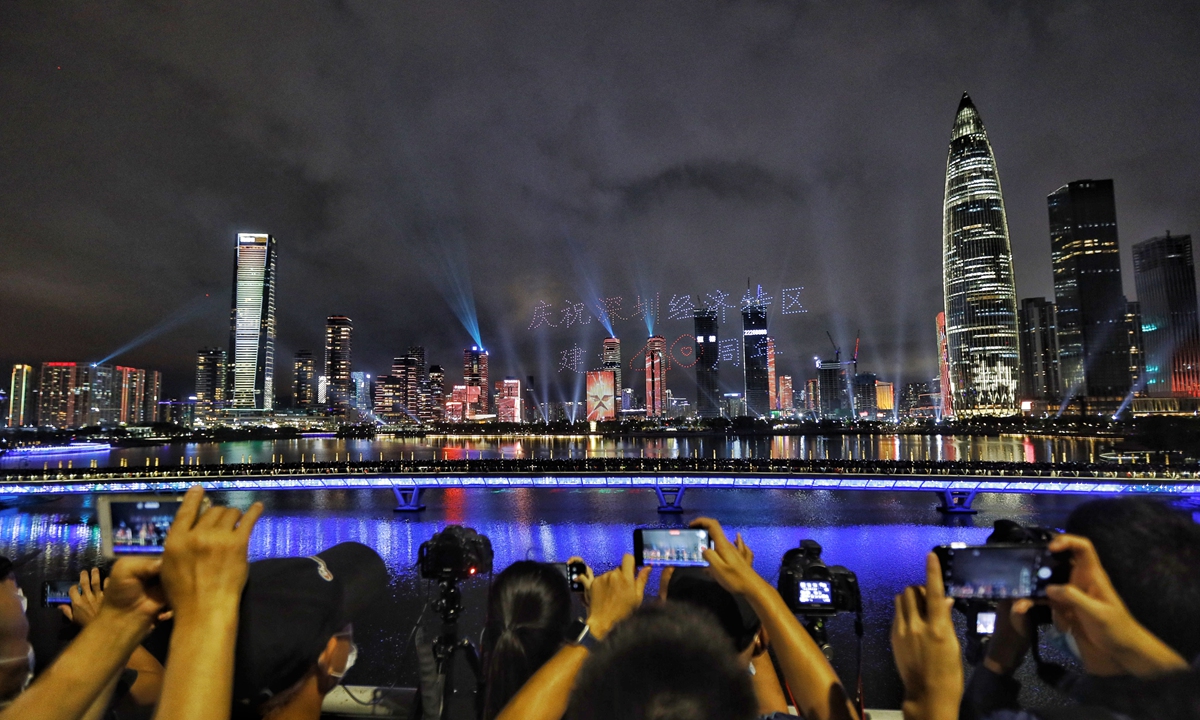
Wang Wen:Story of China’s comeback invigorating
After I finished my research in East China's Fujian Province, a local official of Ningde gave me a book titled Up and out of Poverty, a compilation of Xi Jinping's major works from September 1988 to May 1990 while he worked in the city. Now, Ningde has completely been lifted out of poverty with its GDP per capita exceeding $12,000. It has fostered many enterprises with annual output values of tens of millions of dollars. The streets are clean and lively. At 11 pm, the night market is still bustling with lights and revelry.
2020-09-15 -
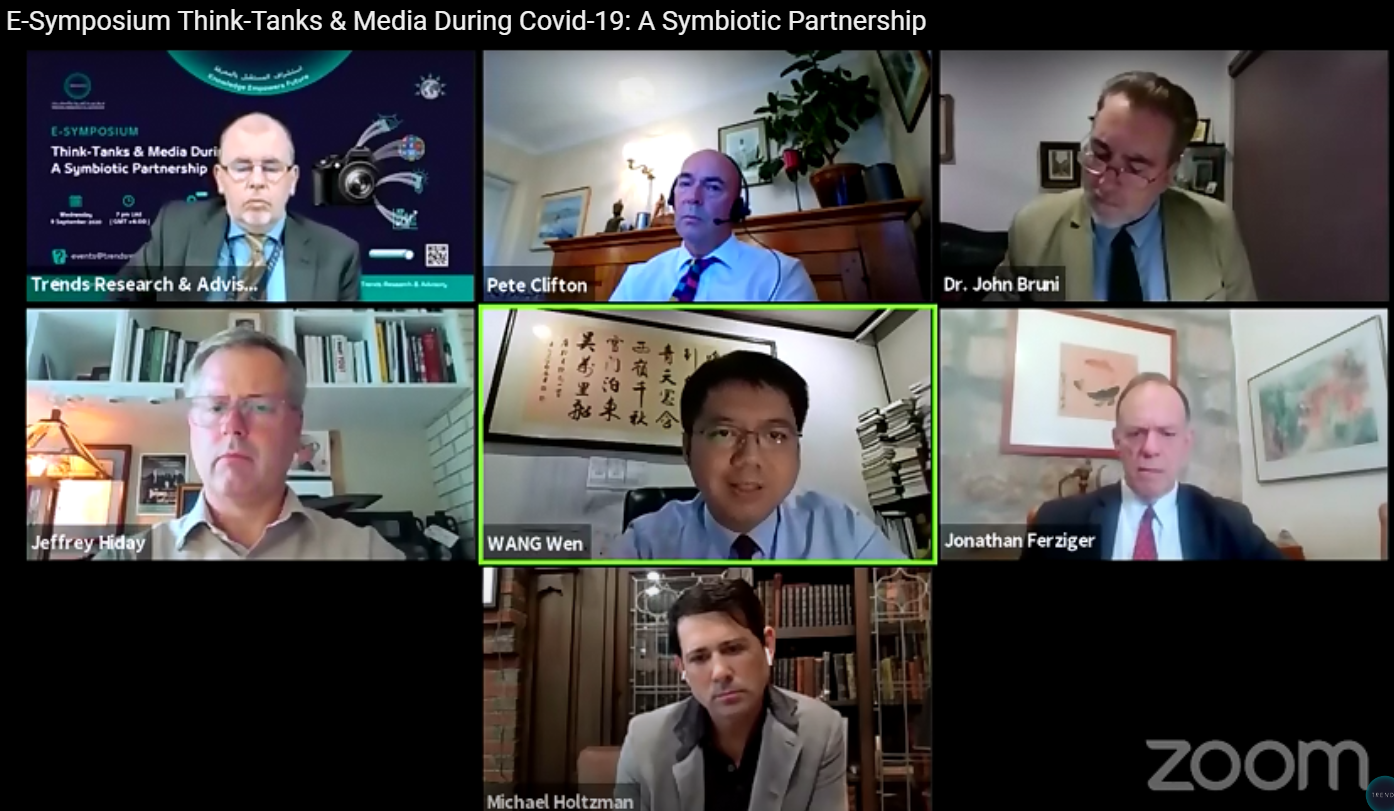
Greater collaboration between media and think-tanks urged during TRENDS E-Symposium
A distinguished panel of experts attending an e-symposium organized by TRENDS Research & Advisory on Wednesday (September 9, 2020) urged the media and think-tanks worldwide to engage more for the cause of public good during times of crisis. Dr. Wang Wen was invited to delivery a keynote speech.
2020-09-14 -
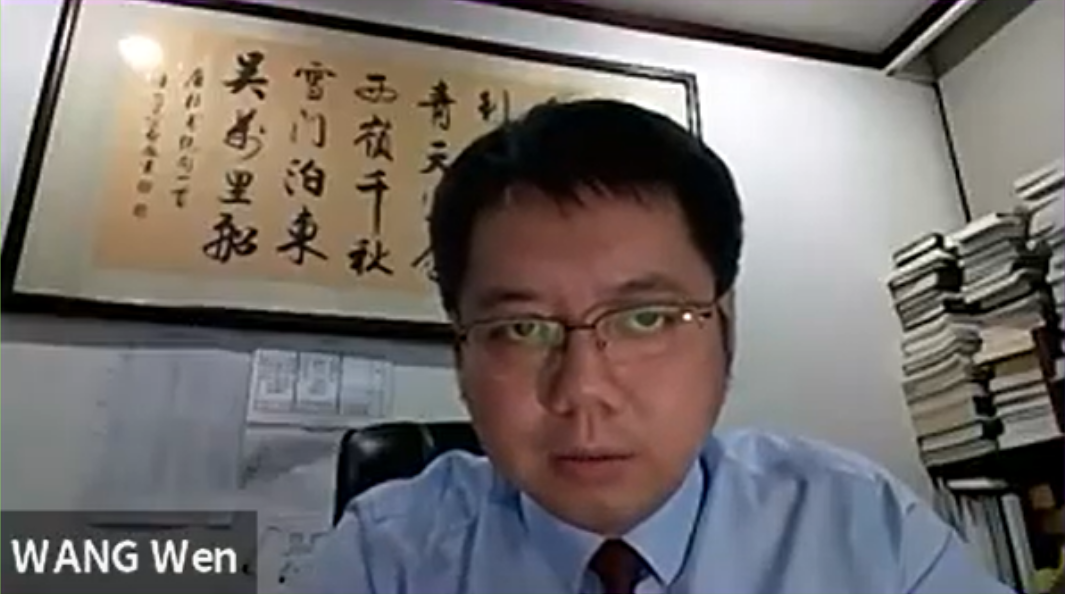
Wang Wen: Try to learn to understand a new and modern China
For my foreign friends, one of useful and pragmatic suggestions is that, i think,try your best to research what the views of China government, like I said right now. For the new Cold War, all the Chinese people, all the Chinese officials don't need Cold War. For the conflict between China and the United States, President Trump everyday twitters and talks about China, but President Xi Jinping of China never mentioned about United States.
2020-09-14 -
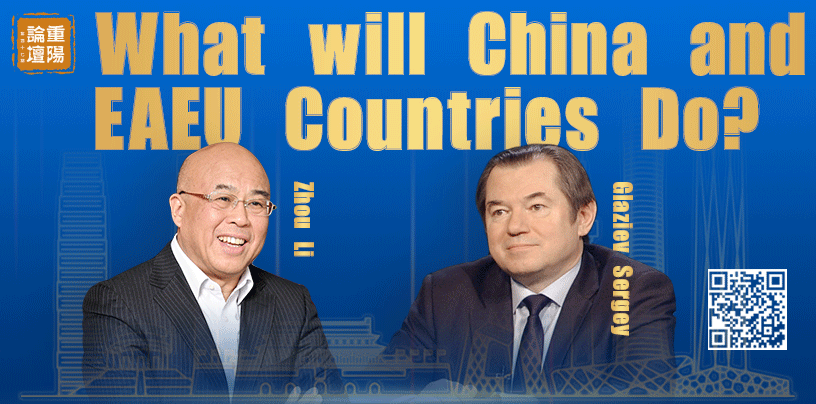
【2020-09-16】The International Situation and Conjugation between Eurasian Economic Union (EAEU) and “Belt and Road” Initiative (BRI) under the Great Change: What will China and EAEU Countries Do?
The International Situation and Conjugation between Eurasian Economic Union (EAEU) and “Belt and Road” Initiative (BRI) under the Great Change: What will China and EAEU Countries Do?
2020-09-14 -
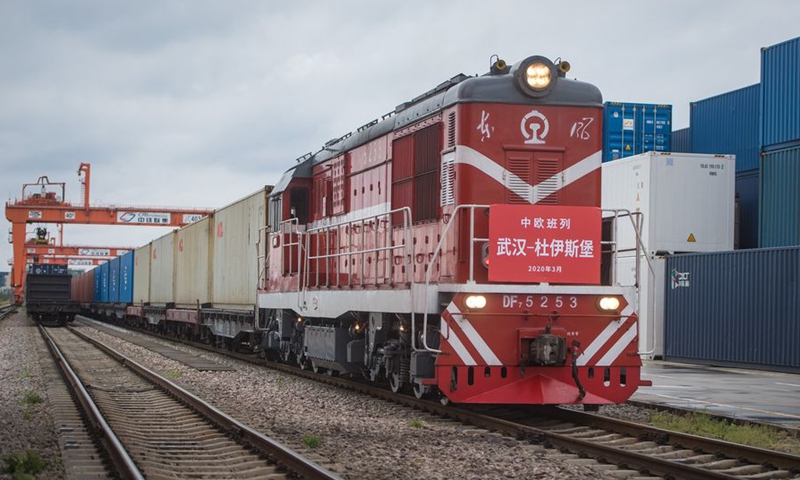
China becomes Germany's top export market in Q2, illuminating future cooperation
As the coronavirus battered world economies, China in the second quarter surpassed the US and became Germany's largest export market for the first time, illuminating the prospects for trade and investment cooperation between the world's second-largest economy and the largest one in Europe.
2020-09-14 -

Vijay Prashad: Multinationals and oil companies are imposing their greed on the people of Mozambique
Three years ago, on October 5, 2017, fighters with the Al Sunnah wa Jama’ah (ASWJ) entered the town of Mocímboa da Praia in northern Mozambique. They attacked three police stations, and then withdrew. Since then, this group—which has since proclaimed its allegiance to the Islamic State—has continued its battle, including capturing the port of Mocímboa da Praia in August 2020.
2020-09-14 -
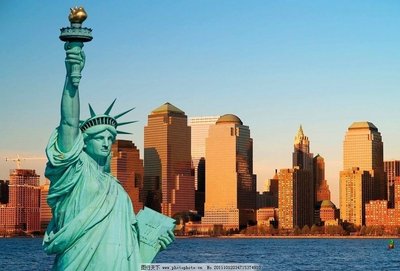
William Jones: US-China relations on a slippery slope
During the entire history of US-China relations since the Nixon visit in 1972, US-China relations have never been as bad as they are today. On this most people are in agreement.
2020-09-14 -

Wang Wen: Media, think tanks must stick to truth, rather than ideology, about COVID-19
I worked as a journalist for eight years, and have been the executive dean and professor of the Chongyang Institute, Renmin University of China, a leading think tank in China, also for eight years. These combined experiences give me confidence to speak about the relations between think tanks and the media.
2020-09-14 -
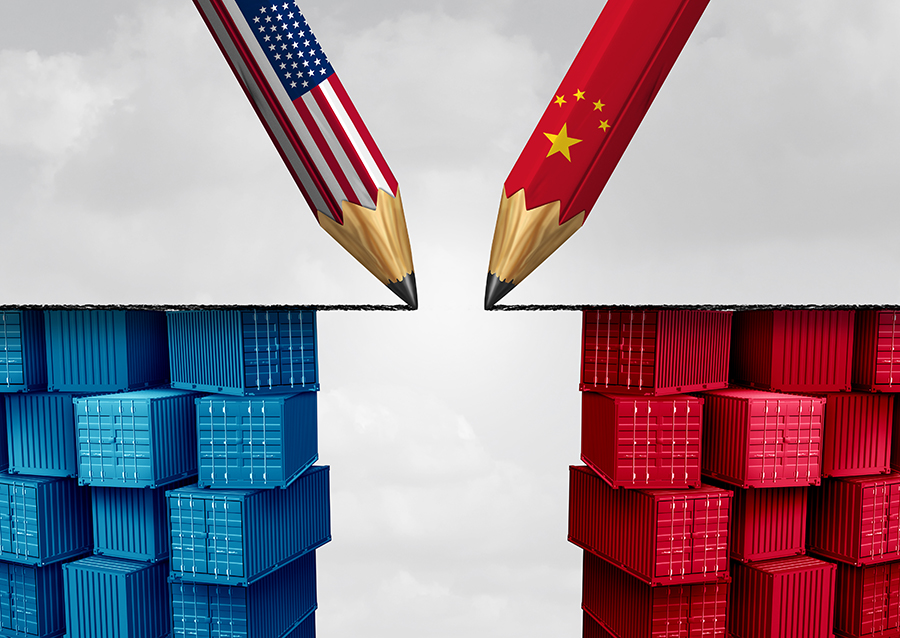
Zhao Minghao:Trump’s Second-Term China Policy
At the recent Republican National Convention in the United States, Donald Trump accepted his party’s presidential nomination and made an acceptance speech. Ignoring objections, Trump chose to conduct election campaign activities at the White House in a bid to appeal to the electorate with the grandeur of the scene topped with inflammatory language.
2020-09-11 -
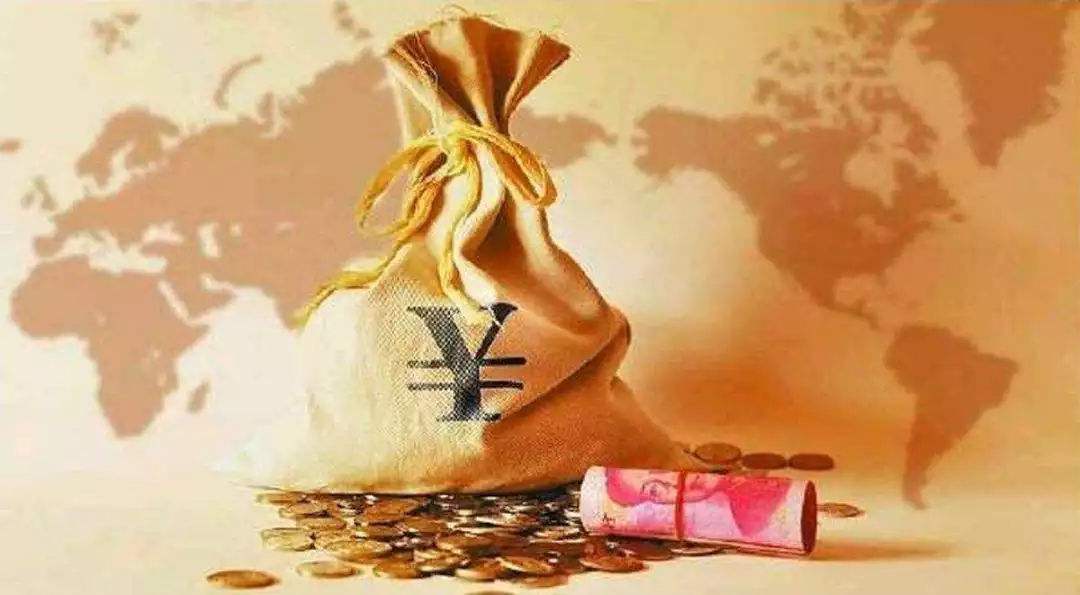
Banking Sectors Of US, China To Prove Resilient Despite Posting Huge Losses In Profits
The banking industries of the United States and China, the two largest global economies, which are currently embroiled in a trade dispute, will make it through the COVID-19-induced crisis despite a huge slump in profits, analysts told Sputnik.
2020-09-11 -
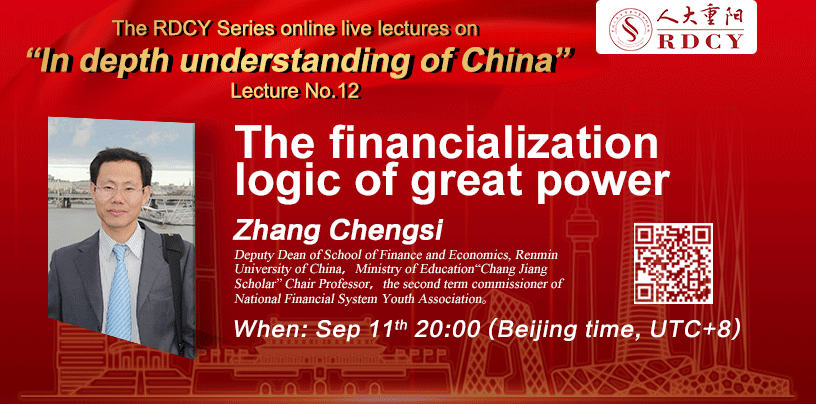
【2020-09-11】Zhang Chengsi: The Financialization Logic of Great Power
Zhang Chengsi, Deputy Dean of School of Finance and Economics, Renmin University of China,Ministry of Education"Chang Jiang Scholar" Chair Professor,the second term commissioner of National Financial System Youth Association。Professor Zhang Chengsi has published more than 50 academic articles as the independent author and first author in Journal of Money, Credit and Banking, Journal of International Money and Finance, International Journal of Central Banking.
2020-09-10 -
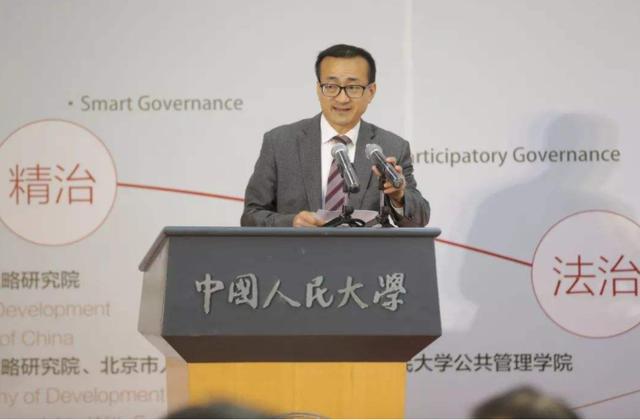
Liu Yuanchun:Don’t believe the predictions of big-name economists. Keynes and Fisher are examples
Vice President of Renmin University of China Liu Yuanchun said at the 2020 Global Wealth Management Forum that it is difficult for a large number of economists and even wise men to see what is behind them. He cited the great economic crisis of 1929 as an example, and said that all the scholars and economists did not predict it, including the founders of macroeconomics. Keynes. In addition, Fisher, the best financial theory and trader in the United States at the time, called his students and friends to enter the stock market in 1928, and the crash in 1929 made him almost jump off the building.
2020-09-10 -
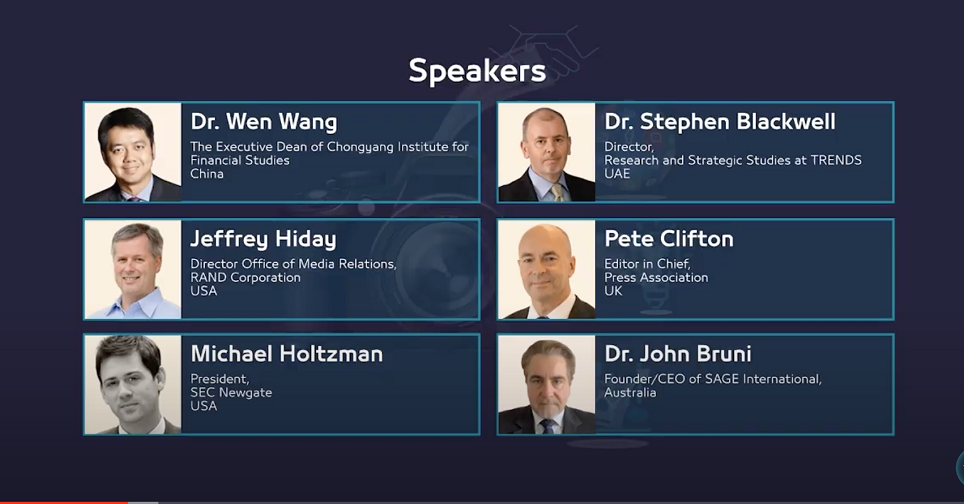
TRENDS E-Symposium Think-Tanks & Media During Covid-19: A Symbiotic Partnership
Wednesday, September 9, 2020
UAE Time (GMT +4.00)
2020-09-10 -
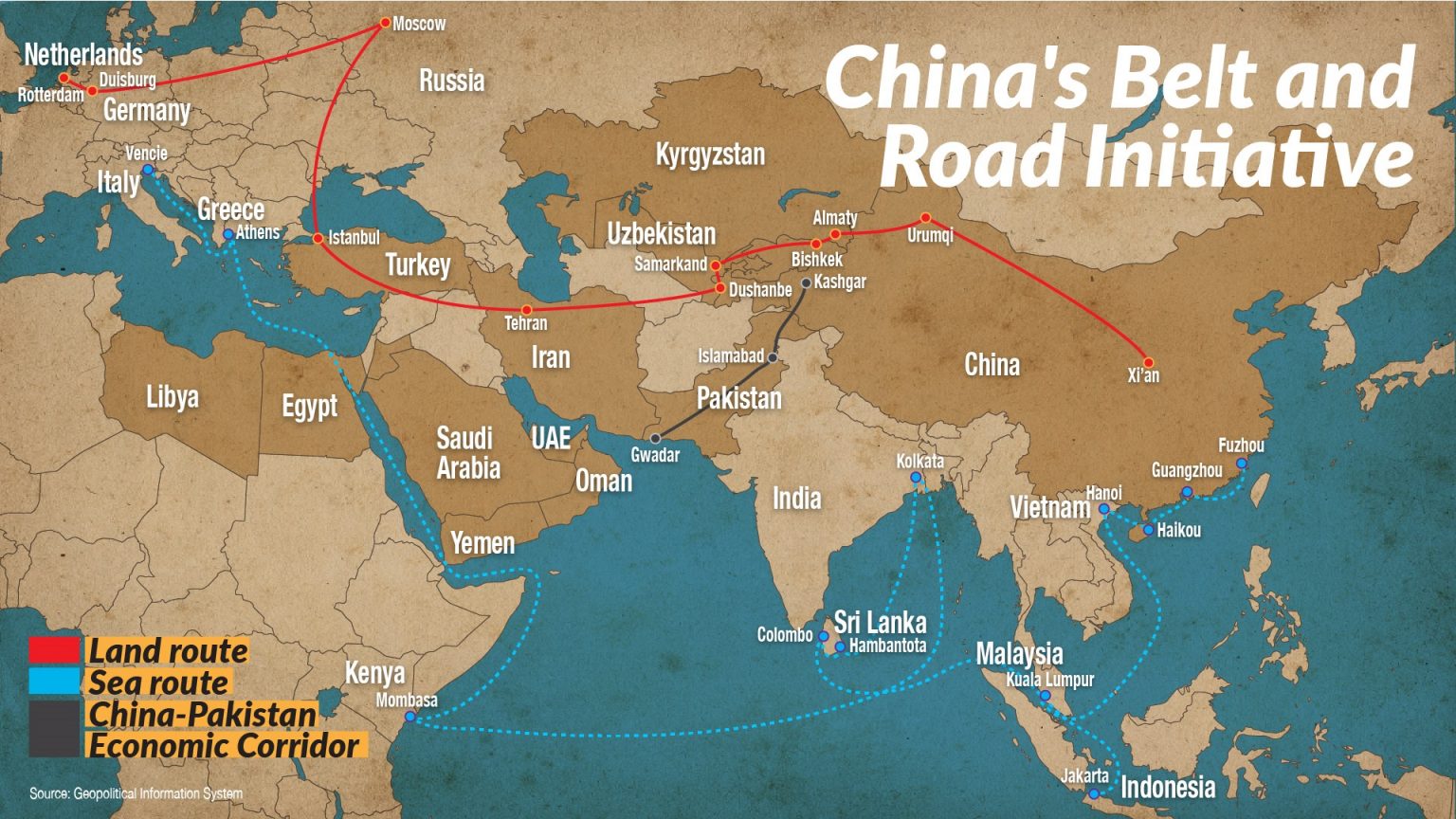
DANILO TÜRK : Distilled wisdom of history
Ideology is an inherent part of politics and has a significant impact on policymaking.However, at the international level, there is a strong need to move beyond ideology and define common objectives for states and adequate conceptual frameworks for cooperation.
2020-09-09 -
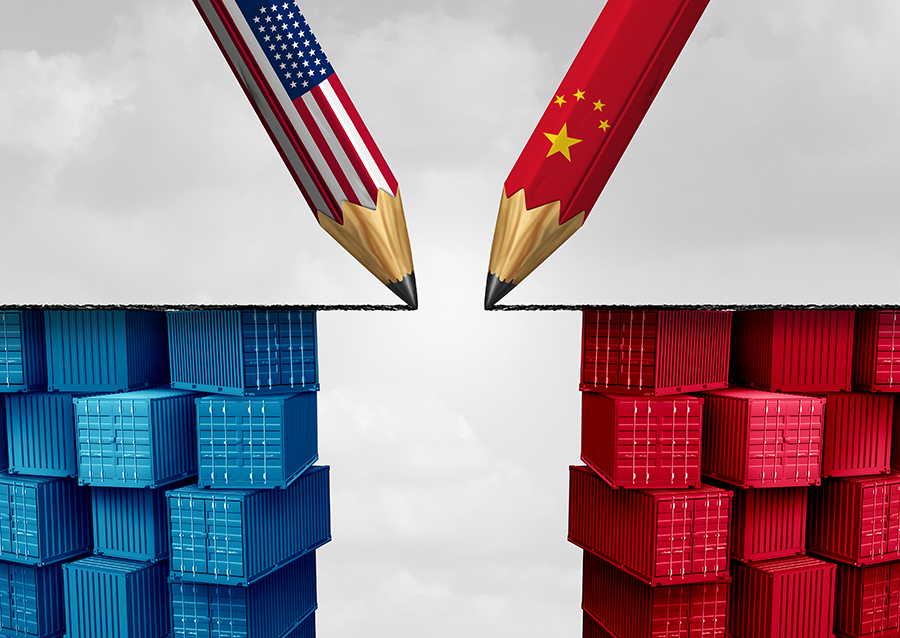
Experts decry Washington's policy toward China, calls for dialogue
Experts attending an international online forum criticized the current U.S. policy toward China, and called for dialogue and cooperation between the two major countries to address common challenges facing mankind such as the coronavirus.2020-09-08 -

Liu Dian: In the era of information economy, data will replace labor and industry?
In the digital economy era, data is replacing Labor and industry have gradually become the basic production factors of human society. The control of Internet sovereignty and data resources has also become the focus of attention of all countries in the international game. While cultivating and constructing data markets, countries around the world are also beginning to try to use macro policies to strengthen the control and regulation capabilities of their own data markets in order to achieve the purpose of protecting data resources and maintaining their own data sovereignty.
2020-09-08 -
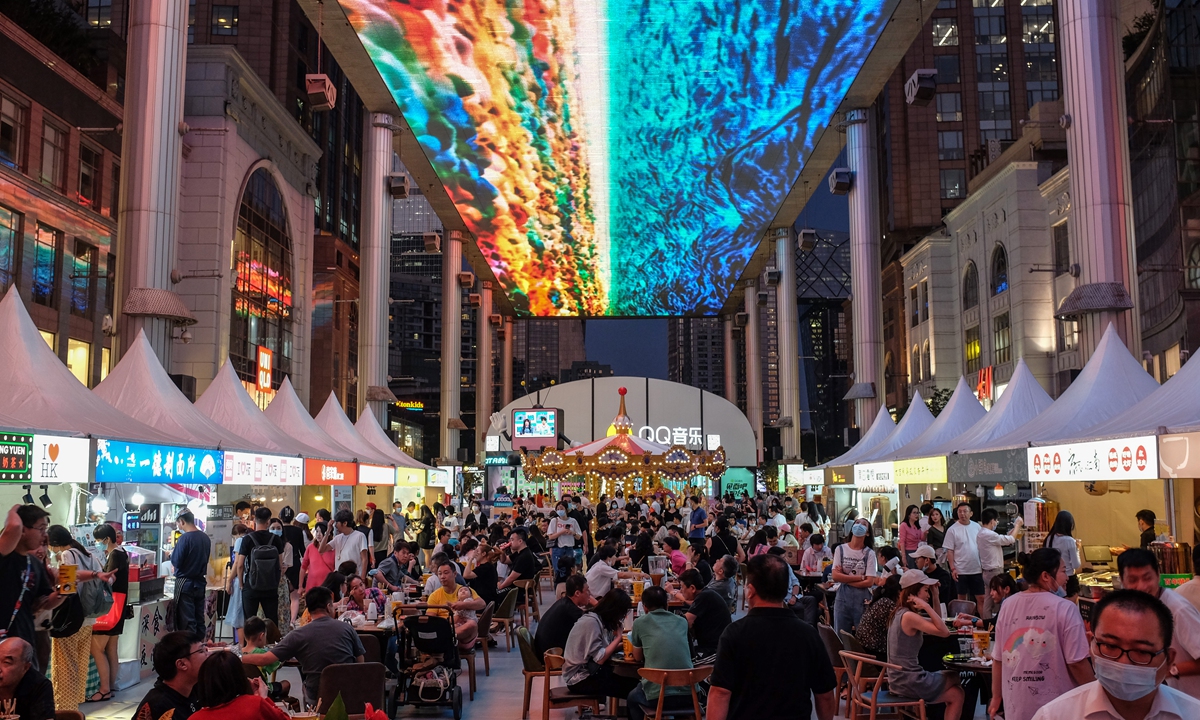
Wang Wen:West needs to change its China narrative
I once thought that I could not run or do mountaineering anymore. My ankle sprain kept recurring after running multiple marathons and climbing multiple peaks over the past three years. I have paid a heavy price for my radical way of exercising. As I have recovered after several months of treatment and recovery, I stop showing off or going to the extremes, but rather pursue only a healthy lifestyle.
2020-09-08 -

Lin Minwang: India”beat back and rake”! India has prepared for the worst, China cannot underestimate the situation
As we all know, the current tensions on the Sino-Indian border are caused by India’s rebellion and treachery, which seriously violated the relevant agreements, agreements and agreements between the two countries. Important consensus. So, before this, what consensus has China and India reached? In the next period of time, what direction will the Sino-Indian border tensions develop?
2020-09-08 -
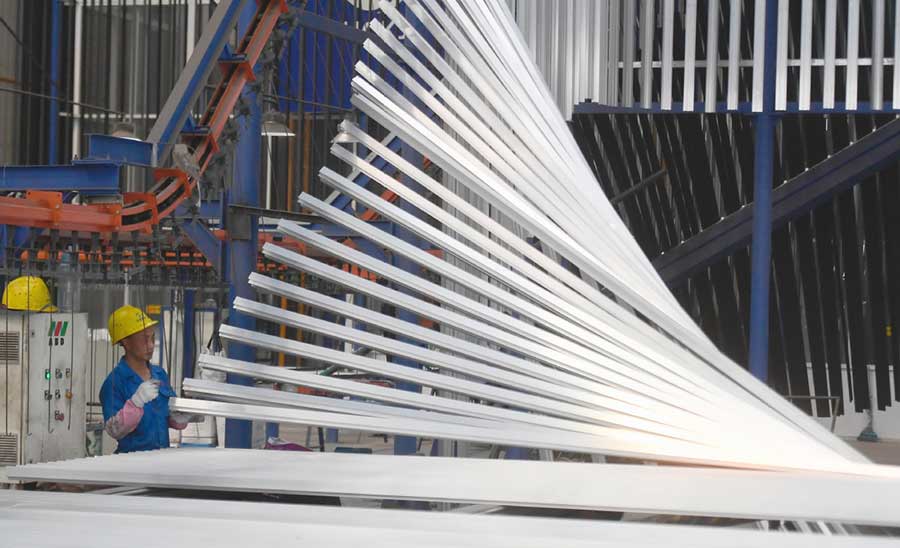
Liu Yuanchun:Understanding "dual circulation" and what it means for world
Ever since China's top leadership floated the new economic development pattern of "dual circulation" in May, the market is abuzz with interpretations of how the model will work and its knock-on effects on the pandemic-rattled global economy.Defined as a policy that "takes the domestic market as the mainstay while letting internal and external markets boost each other," the model has been viewed by analysts as a viable solution for China to build up resilience against external shocks and share its opportunities for development with the rest of the world.
2020-09-07 -
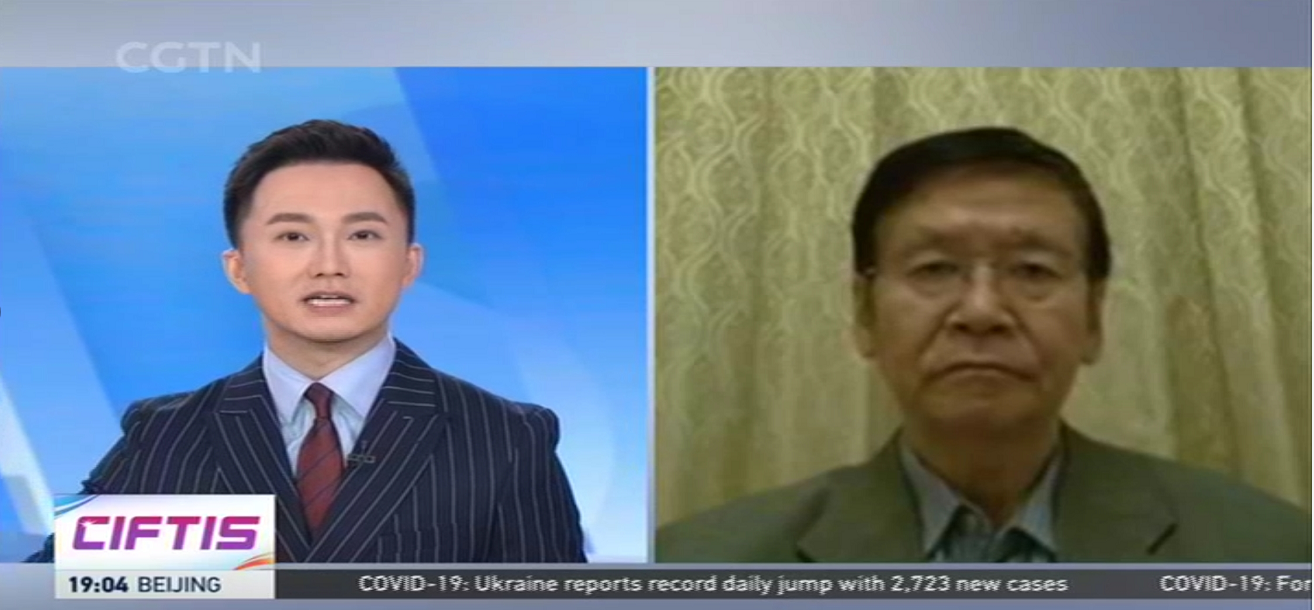
【CGTN】Liu Zhiqin : Asia world's fastest-growing region in service trade
International Trade in Services Fair
2020-09-07
























































































 京公网安备 11010802037854号
京公网安备 11010802037854号





